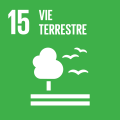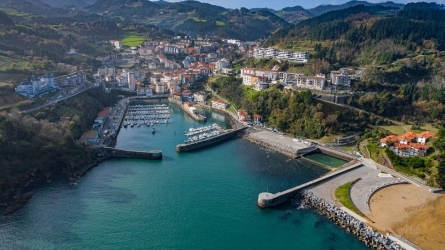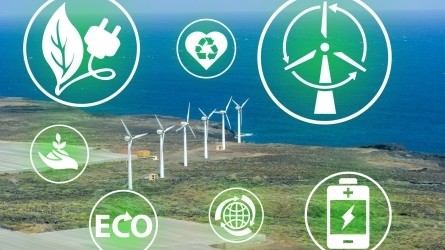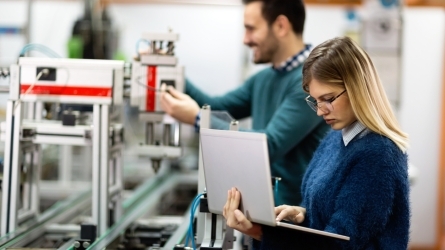
Bosques del siglo XXI: innovación, bioeconomía y emprendimiento para una transición verde
Description
Contenidos clave del Curso de Verano::
Cambio climático y resiliencia forestal: planificación y prevención de incendios.
Nuevos usos de la madera local: construcción, biochar, diseño y química verde.
Innovación social: género, relevo generacional y emprendimiento territorial.
Herramientas digitales para la gestión forestal (FORMES, DSS).
Taller de ideas: creación de propuestas de negocio forestal sostenible.
Visitas técnicas a zonas piloto y centros de transformación (Urdaibai).
Objectives
Introducir conceptos clave sobre gestión forestal multifuncional y bioeconomía circular.
Explorar herramientas digitales y metodologías innovadoras aplicadas en PRISMA.
Fomentar la creación de modelos de negocio sostenibles vinculados al bosque.
Visibilizar el papel de la mujer y los jóvenes en el futuro del medio rural.
Activity directed to
- All public
- University student
- Students not from university
- Teachers
- Professionals
- Estudiantes de ciencias forestales, medioambiente, ingeniería, arquitectura, diseño sostenible, economía circular, así como profesionales del sector forestal, técnicos municipales y emprendedores verdes.
Directors

Oskar Azkarate Zabalo
BASKEGUR
Ingeniero agrícola por la Universidad pública de Navarra. Ha sido responsable de la planificación, elaboración y ejecución del plan de desarrollo rural e industrial de la población Leintz Gatzaga (Gipuzkoa). Responsable comercial en LANA S. COOP. / ELUR S.COOP Responsable comercial zona norte en HIANSA Presidente de EGURLANDUA Director Comercial del GRUPO HOLTZA Responsable unidad Madera CLUSTER HABIC Servicio empresas Forestal- Madera HAZI FUNDAZIOA Desde 2016 Director de BASKEGUR
Registration fees
| Face-to-face | Until 03-09-2025 |
|---|---|
| 0 EUR |
| Live online | Until 03-09-2025 |
|---|---|
| 0 EUR |
Venue
Miramar Palace
Pº de Miraconcha nº 48. Donostia / San Sebastián
Gipuzkoa
Miramar Palace
Pº de Miraconcha nº 48. Donostia / San Sebastián
Gipuzkoa
Sustainable development goals
Agenda 2030 is the new international development agenda approved in September 2015 by the United Nations. This agenda aims to be an instrument to favour sustainable human development all over the planet, and its main pillars are the eradication of poverty, a reduction in equality and vulnerability and fostering sustainability. It is a unique opportunity to transform the world up to 2030 and guarantee human rights for all.

4 - Quality education
Guarantee quality education that is inclusive and equitable and foster opportunities for lifelong learning for everyone. Key issues: free-of-charge, equitable and quality education, access to higher education and training on an equal basis, education for sustainable development, suitable education centres for persons with disabilities, and safe, non-violent and efficient learning environments.
More information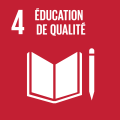
5 - Gender equality
Achieve gender equality and empower all women and young girls. Key issues: the end of all forms of discrimination and violence, recognition of unpaid care and domestic work, shared responsibility, equal opportunities, full and effective participation in reproductive rights, equal rights vis-à-vis economic resources, access to land and other assets and ownership.
More information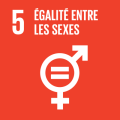
8 - Decent work and economic growth
Foster sustained, inclusive and sustainable economic growth, full and productive employment and decent work for everyone. Key issues: decent work, full and productive employment, entrepreneurship, fostering micro-companies and SMEs, employment rights, safe working environments, youth employment, equal opportunities and pay, strengthening of financial institutions, and breaking the link between economic growth and the degradation of the environment.
More information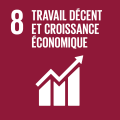
9 - Industry, innovation and infrastructure
Build resilient infrastructures, promote inclusive and sustainable industrialisation and foster innovation. Key issues: reliable, sustainable, resilient and quality infrastructures, inclusive and sustainable industrialisation, modernisation, clean and environmentally rational industrial technologies and processes, scientific research and improvement of technological capabilities, universal access to ICTs.
More information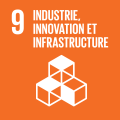
11 - Sustainable cities and communities
Make cities and other human settlements inclusive, safe, resilient and sustainable. Key issues: access to suitable housing and basic services that are secure and affordable, suitable and sustainable transport systems, inclusive urban planning, participative planning and management, protection of cultural and natural heritage, air-quality, green zones, and connections between urban, peri-urban and rural areas.
More information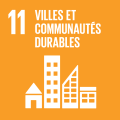
12 - Responsible consumption and production
Guarantee sustainable modalities of consumption and production. Key issues: sustainable management and efficient use of natural resources, reduction of chemical particles released to the atmosphere, water and soils, reduction of waste products, recycling, reuse and reduction, sustainable practices, sustainable public procurement, sustainable lifestyles, rationalisation of inefficient subsidies for fossil fuels.
More information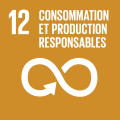
13 - Climate action
Adopt urgent measures to combat climate change and its effects. Key issues: mitigation, resilience and capacity for adaptation, planning, national strategies and plans, education and raising awareness, reduction of effects and early warning systems, compliance with the Framework Convention of the United Nations on Climate Change.
More information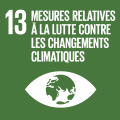
15 - Life on land
Protect, establish and foster the sustainable use of terrestrial ecosystems, manage forests sustainably, fight desertification, hold back and reverse the degradation of land and delay the loss of biodiversity. Key issues: the fight against desertification, reforestation, conservation, the regeneration and sustainable use of terrestrial ecosystems, natural habitats, biodiversity, invasive exotic species, integration of the values of ecosystems into planning, poaching.
More information